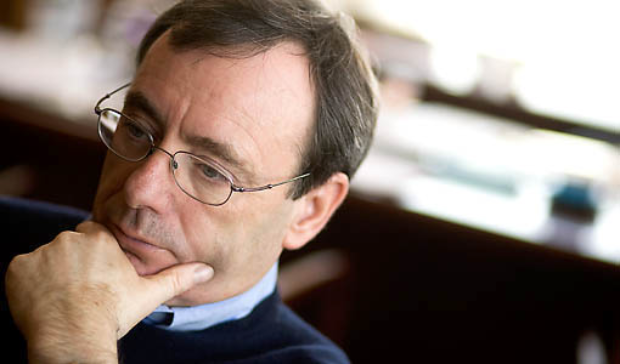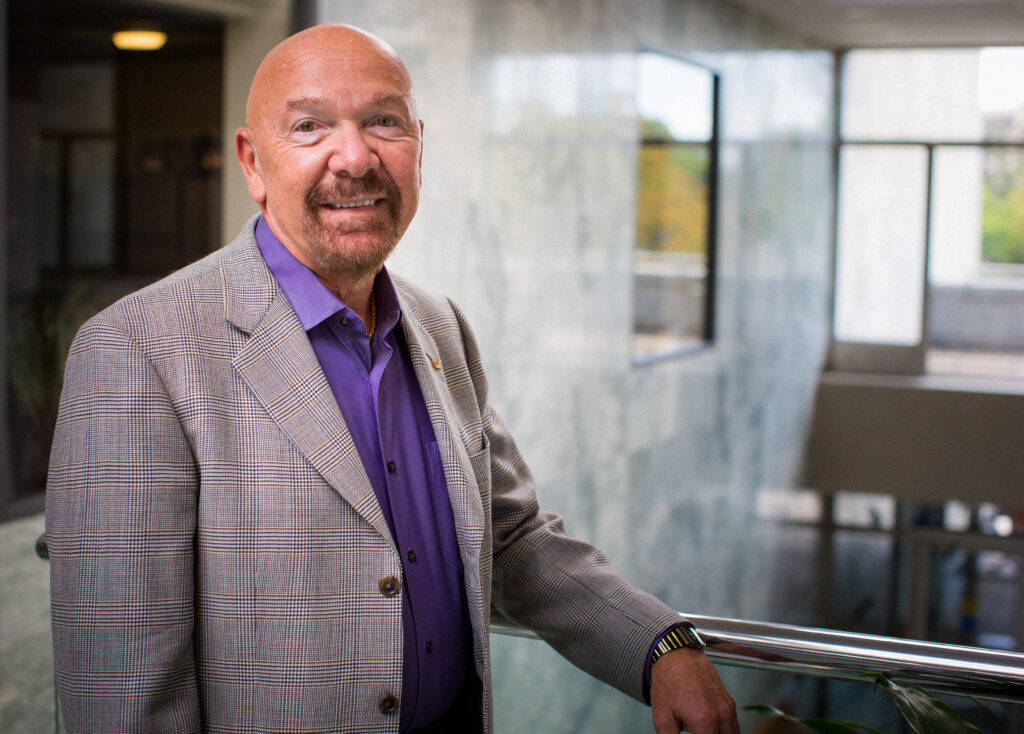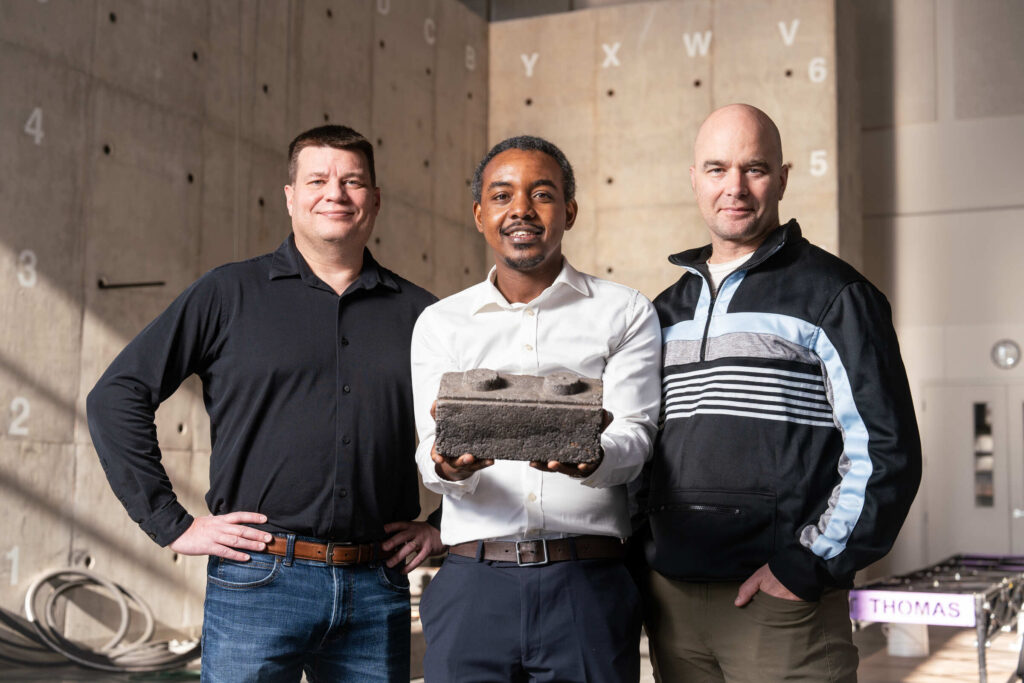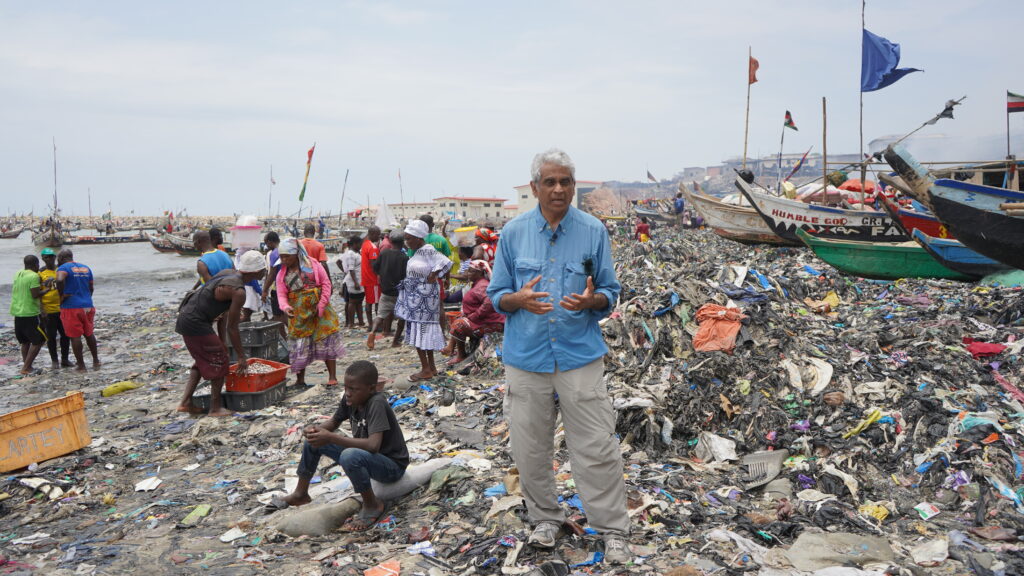George Buckley’s title at 3M is chairman, president and chief executive officer, and in that capacity he runs one of Minnesota’s largest and most distinguished companies.
Buckley has another title – doctor – that reflects his engineering Ph.D. and in that capacity he not only fits nicely into the 3M environment but he also continues to live out his grandmother’s bold prediction when he was a three-year-old boy in Sheffield, England.
He recalls the prediction as if it were made yesterday. He was standing by the large table in her kitchen one day when she had a visitor.
“The woman asked, ‘And who is this young man?’ I didn’t answer,” Buckley said, “given my grandmother’s philosophy of ‘children are to be seen and not heard,’ so my grandmother said, ‘This is George.’
“The woman asked, ‘And what are you going to be when you grow up, George?’
“I didn’t answer that question either, of course, and grandmother said, ‘He’s going to be an electrical engineer.’
“It’s an amazing story! None of my family members had ever been to a university, and I have no idea where she got that idea, but it was firm in her mind, oft repeated, and eventually it became firm in mine.”
So firm that Buckley became an electrician, an electrical engineer and a senior executive at several corporations before he took the top job at 3M in December 2005. He looks back on that moment with his grandmother, as well as his childhood, as “something right out of a Dickens novel” in the way it shaped his career and his character.
Buckley’s parents split up when he was young and he lived at his grandmother’s rooming house, where foster parents who were itinerant lodgers raised him. His foster mother died when he was eight, and his biological mother came back into his life when he was 11. He had ailments, including chronic bronchitis, kidney disease and anemia, and went to a school for physically handicapped children.
He left school at 15 and got a job as an apprentice electrician at a construction company. He spent five years at what today would be called a community college before matriculating at the University of Huddersfield, where he earned a bachelor’s degree in electrical and electronic engineering. He received his engineering doctorate from Huddersfield and Southampton in 1976.
He was a researcher for the Central Electricity Generating Board in London and worked in Detroit as a researcher for General Motors before returning to England as the managing director (president) of a British Railways Board division. He moved to the United States for good in 1993 as chief technology officer for a division of Emerson Electric Co. in St. Louis.
Emerson manufactured motors, gearboxes and other equipment for major appliances, and one of Buckley’s projects was to design a more-efficient washing machine.
“We invented what was to become the Maytag Neptune washing machine,” he said. “It was revolutionary.” While conventional machines could handle 1.3 pounds of clothing per kilowatt-hour, “our machine did 3.6 pounds – or nearly three times the efficiency.”
Buckley moved up the ladder at Emerson to become president of two divisions before joining Brunswick Corp. in 1997 as president of its Mercury Marine Group. Among his tasks there was to develop a four-stroke engine that delivered more horsepower with less noise and fewer emissions, “and run so smoothly that I could set a glass of champagne on the top of the motor and not see a ripple.”
“How are we going to do this?” Mercury’s chief engineer asked Buckley.
“I don’t know,” he replied, “but we are going to do it!”
And they did. Buckley said the engine transformed the industry and the way Mercury was perceived in the marketplace, and the company’s success with the project validated his philosophy of how to work with employees.
“If you are going to get the best out of people, you have to inspire them,” he said. “And you aren’t going to inspire them if they don’t get to know you. They have to see the level of your commitment, your drive, your resolve to achieve a breakthrough.”
Peter Leemputte, senior vice president and chief financial officer of Brunswick, saw that resolve. He said Buckley brought an unusual set of skills to Brunswick, including a strategic vision of what the company could accomplish and an engineer’s eye for details, “and then he motivated us to achieve that vision. He is a fantastic guy.”
Three years ago, a headhunter contacted Buckley about the 3M job. He loved his work at Brunswick, where he had risen to chairman and CEO in 2000. He did a pros and cons spreadsheet about the Brunswick and 3M jobs.
“But that spreadsheet told me absolutely nothing,” he said. “I could not come to a decision. I was torn between my loyalty to Brunswick and my friends there and the opportunities at 3M. So here is how I resolved it. I knelt down in my office and prayed to God. I said I didn’t know what to do, so I would toss a coin – heads, 3M; tails, Brunswick – and I asked Him to make it come down on the correct side. You know which side came up.”
During his first annual meeting in 2006, Buckley told 3M stockholders the company would focus on four strategic elements: core business growth, complementary acquisitions, emerging business opportunities and international expansion – all undergirded by innovation.
“One of the keys to sustainable success is unfettered and well-directed innovation,” he said. “Innovation is not just about a process, it’s also about imagination and people.”
He believes today in the power of innovation more than ever, especially at 3M, which has earned worldwide recognition because of product brands such as Scotch and Post-it.
“Innovation is part of our culture, our genetic code. My job is to instill a sense of optimism and a willingness to take risks. This company has an incredible history,” he said, pointing out his office window. “Look at all of those buildings and laboratories. They’re all about innovation.”
Buckley’s message resonates well. Roger Lacey, vice president for corporate strategy and a 32-year 3M employee, credits Buckley for taking the time “to go into the labs and talk to people. He makes the time because he believes in these people, and he knows what they can do for 3M.”
Early results in Buckley’s tenure are encouraging. Revenue and earnings hit records of $22.9 billion and $3.9 billion, respectively, in 2006 and $24.5 billion and $4.1 billion in 2007.
As important as innovation is, Buckley is equally insistent on ethical business conduct. The company is “defined by the character and integrity of its people,” he says on 3M’s Web site. “All of our constituencies expect this of us. More importantly, we expect it of ourselves.”
He always has expected it of himself, too. He traces his own character and integrity to the early influence of his foster mother and grandmother. “They colored my entire upbringing with their Victorian-style value system,” he said.
And they inspired him to become something he still calls himself today – an electrical engineer.







